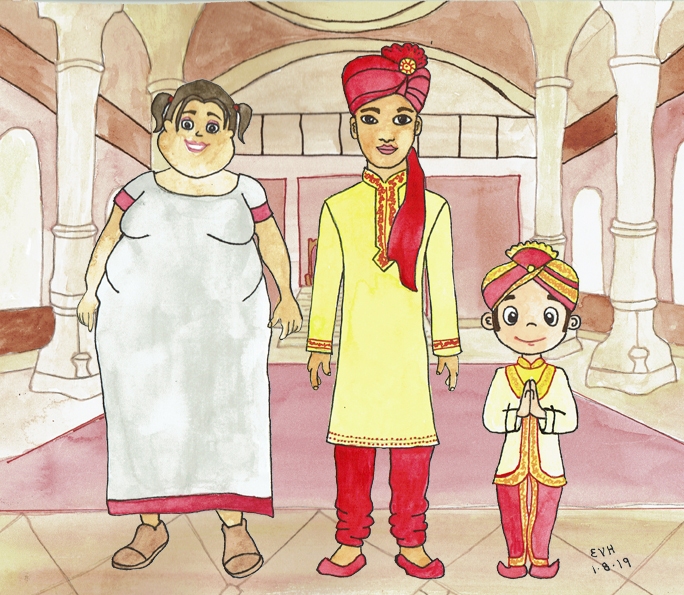
Jataka 108
Bāhiya Jātaka
The Story of Bāhiya
as told by Eric Van Horn
originally translated by Robert Chalmers, B.A., of Oriel College, Oxford University
originally edited by Professor Edward Byles Cowell, Cambridge University
This is a somewhat curious but amusing story, but I think its message is clear. It is fundamentally about mindfulness and the great benefit that can come from that. In this particular case, it is about a woman who needs to relieve herself (!). She is so thoughtful about how she goes about this, that she earns the favor of the king, becomes his queen, and gives birth to a “universal monarch.” Not bad for mindful peeing, eh?
“Learn this quickly.” This story was told by the Master while he was living in the Gabled Chamber at the Great Grove near Vesāli. It is about a Licchavi (Licchavi was a “tribal confederation” in ancient India), a devout prince who had embraced the Dharma. He had invited the Saṇgha - with the Buddha at its head - to his house. There he showed great generosity towards them. Now his wife was a very fat woman, almost bloated in appearance, and she was badly dressed.
Thanking the prince for his hospitality, the Master returned to the monastery and, after a discourse to the monks, retired to his perfumed chamber.
Assembled in the Dharma Hall, the monks expressed their surprise that a man like this Licchavi prince should have such a fat, badly dressed woman for his wife, and that he was so fond of her. Entering the Hall and hearing what they were discussing, the Master said, “Monks, as now, so in former times he was fond of a fat woman.” Then, at their request, he told this story of the past.
Once upon a time when Brahmadatta was reigning in Benares, the Bodhisatta was one of his courtiers. And a fat and badly dressed country woman who worked for hire was passing near the courtyard of the palace when a pressing need to relieve herself came upon her. Bending down with her clothing decently gathered round her, she accomplished her purpose and was erect again in an instant.
The King happened to be looking out onto the courtyard through a window at the time and saw this. He thought, “A woman who could manage this with so much decorum must enjoy good health. She would be sure to keep her house neat and clean, and a son born into a clean house would be sure to grow up clean and virtuous. I will make her my queen consort.” And accordingly, the King, first assuring himself that she was not another man’s wife, sent for her and made her his Queen. She became very near and dear to him. Not long afterwards a son was born, and this son became a Universal Monarch (a particularly compassionate and wise ruler, also called a “Wheel Turning Monarch”).

Figure: Somewhat Unusual but Nonetheless Happy Family
Observing her fortunes, the Bodhisatta took occasion to say to the King, “Sire, why should not care be taken to mindfully fulfill all proper observances, when this excellent woman won your majesty’s favor and rose to such fortune by her modesty and decency in relieving herself.” And he went on to utter this stanza:
Learn this quickly. Though gaudy people there be,
The rustic pleased the King by modesty.
Thus did the Great Being commend the virtues of those who devoted themselves to the study of proper decorum.
His story ended, the Master identified the birth by saying, “The husband and wife of today were also the husband and wife of those times, and I was the wise courtier.”
